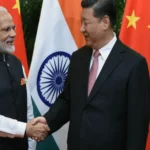Prime Minister Shehbaz Sharif has called upon the citizens of Pakistan, particularly those in affluent positions, to contribute generously to the Prime Minister’s relief fund aimed at assisting the victims of the ongoing humanitarian crisis in Gaza and Lebanon. This appeal comes amid increasing reports of Israeli attacks and blockades, which have significantly hampered efforts to deliver essential aid to the affected regions.
Urgent Humanitarian Needs
During a recent review meeting focused on Pakistan’s aid efforts for Gaza and Beirut, Prime Minister Shehbaz Sharif emphasized the urgent need for humanitarian assistance. He noted the difficulties faced in delivering aid due to ongoing violence and restrictions in the area. The Prime Minister instructed the dispatch of two planes filled with vital supplies and called for additional aid to be sent through land routes to ensure that help reaches those in desperate need.
The Prime Minister’s appeal underscores the critical situation facing many civilians caught in the conflict. “Our duty as a nation is to stand by our brothers and sisters who are suffering,” he stated. He encouraged media outlets to help raise awareness about the relief fund, urging citizens to step forward and support the initiative.
Details of the Aid Efforts
As part of the relief efforts, the Pakistani government is coordinating the delivery of essential supplies, including tents, clothing, blankets, medicine, food, and drinking water, to the conflict-affected areas. Prime Minister Shehbaz highlighted that the Government of Pakistan is committed to facilitating the delivery of these goods, particularly for NGOs that wish to send relief items.
This focus on collaboration with non-governmental organizations reflects the government’s recognition of the role that civil society can play in humanitarian efforts. By working together, they aim to overcome the challenges posed by Israeli blockades and ensure that assistance reaches the most vulnerable populations.
NDMA’s Ongoing Aid Deliveries
The National Disaster Management Authority (NDMA) has been actively involved in delivering humanitarian aid to Gaza and Lebanon. Recently, NDMA dispatched its second humanitarian aid consignment, which consisted of a 100-ton shipment of essential supplies that departed from Karachi for Beirut. This effort aligns with the directives provided by Prime Minister Shehbaz Sharif.
Coordinated in collaboration with the Al-Khidmat Foundation, this relief package includes crucial items such as medicines, ready-to-eat meals, tents, tarpaulins, winter clothing, warm bedding, and powdered milk. The aim is to support those affected by the ongoing conflict, addressing both immediate needs and longer-term recovery.
This latest shipment marks the twelfth aid delivery from Pakistan to these regions, with previous consignments specifically targeting Palestine. The consistent commitment to sending aid underscores Pakistan’s dedication to alleviating the humanitarian crisis in the region.
Education Initiatives for Palestinian Students
In addition to humanitarian aid, Pakistan is also offering educational opportunities to Palestinian students impacted by the conflict. Recently, a group of 64 Palestinian medical and dental students arrived safely in Islamabad to continue their education at Pakistani institutions. This arrival marks the second batch of students to benefit from a program aimed at providing scholarships to over 100 Palestinian students.
Supported by various organizations, including Doctors of Rehman, Global Relief Trust, and Al-Khidmat Foundation, the initiative was announced by Pakistan’s foreign ministry in July. The program aims to help students pursue their studies despite the challenges posed by the ongoing war in the Middle East, providing them with a chance for a better future.
Challenges in Delivering Aid
Despite the efforts being made, delivering humanitarian aid in the region remains fraught with challenges. Israeli attacks and blockades have complicated logistics and made it difficult to reach those in need. Prime Minister Shehbaz Sharif acknowledged these hurdles, stating that the government is actively seeking ways to navigate these obstacles and ensure that aid reaches deserving recipients.
The situation in Gaza and Lebanon is dire, with reports indicating severe shortages of food, medical supplies, and other essentials. As the international community continues to respond to the crisis, the importance of coordinated efforts to provide assistance becomes increasingly evident.
Call for International Support
Alongside local efforts, Prime Minister Shehbaz Sharif’s appeal also serves as a call for the international community to step up and provide support. He emphasized the need for global awareness and action to address the humanitarian crisis in Gaza and Lebanon, urging other nations to contribute to relief efforts.
The Prime Minister’s appeal comes at a critical juncture, as humanitarian organizations worldwide are striving to gather resources and deliver aid to those affected by the conflict. By rallying support from both the domestic and international fronts, Pakistan aims to play a meaningful role in alleviating the suffering of civilians in the region.
Role of NGOs and Civil Society
The involvement of NGOs and civil society in humanitarian efforts is crucial, as these organizations often have the capacity to mobilize resources quickly and efficiently. The Government of Pakistan has expressed its willingness to collaborate with these groups, facilitating the delivery of aid and ensuring that it reaches the most affected populations.
The Prime Minister’s directive for enhanced coordination with NGOs reflects a recognition of the essential work they do on the ground. By leveraging the strengths of these organizations, the government hopes to amplify its humanitarian response and address the urgent needs of those impacted by the conflict.
Future Aid Plans
Looking ahead, the Pakistani government has outlined plans for continued support to Gaza and Lebanon. As part of these plans, further shipments of humanitarian aid are being organized, with an emphasis on adapting to the evolving situation on the ground. The government remains committed to providing assistance as long as the need persists.
Prime Minister Shehbaz Sharif has indicated that efforts will be made to assess the situation regularly, ensuring that the aid delivered is relevant and meets the needs of the affected populations. This adaptive approach is essential in the face of a rapidly changing humanitarian landscape.
Community Involvement and Local Support
To bolster these efforts, community involvement is being encouraged throughout Pakistan. The Prime Minister’s call for donations to the relief fund emphasizes the role that ordinary citizens can play in supporting humanitarian efforts. By contributing to the fund, individuals can directly impact the lives of those in need.
Local organizations and community groups are also being urged to participate in fundraising initiatives and awareness campaigns. This grassroots support can help amplify the government’s efforts and foster a sense of solidarity among the Pakistani people regarding the plight of those affected by the conflict.
The Path Forward
As the situation in Gaza and Lebanon continues to evolve, the need for sustained humanitarian support remains paramount. Prime Minister Shehbaz Sharif’s leadership in mobilizing resources and fostering collaboration between the government, NGOs, and the public will be critical in addressing the ongoing crisis.
The collective efforts of the Pakistani government and its citizens will play a significant role in shaping the future of aid delivery and ensuring that assistance reaches those who need it most. By maintaining a focus on humanitarian principles and prioritizing the welfare of civilians, Pakistan can contribute meaningfully to alleviating the suffering caused by the conflict.
The Role of the Media
The media plays an essential role in highlighting the humanitarian crisis and informing the public about how they can help. Prime Minister Shehbaz Sharif has called on media outlets to raise awareness regarding the relief fund, encouraging coverage of the needs in Gaza and Lebanon. By providing accurate information and sharing stories of those affected, the media can motivate citizens to contribute to the relief efforts.
Furthermore, media engagement can help in keeping the international community informed about Pakistan’s efforts to provide aid and the ongoing needs in the region. This visibility can attract additional support from international organizations and countries willing to contribute to humanitarian efforts.
Collaborative Efforts with International Organizations
The Government of Pakistan is also seeking to enhance its collaboration with international organizations and agencies involved in humanitarian relief. By partnering with established entities such as the United Nations, the Red Cross, and other NGOs, Pakistan aims to strengthen its aid delivery mechanisms and ensure that support reaches those most in need.
These collaborations can also facilitate the sharing of best practices and resources, improving the overall effectiveness of relief efforts. As the situation in Gaza and Lebanon continues to unfold, such partnerships are critical in adapting to the changing landscape and addressing the urgent needs of affected populations.
Long-Term Commitment to Humanitarian Aid
Pakistan’s commitment to humanitarian aid goes beyond immediate responses to crises. The government recognizes the importance of long-term support for the recovery and rebuilding of communities affected by conflict. This approach includes not only immediate relief but also initiatives aimed at fostering resilience and sustainable development in the region.
By investing in educational opportunities, healthcare, and infrastructure development, Pakistan aims to support the long-term recovery of communities impacted by the ongoing conflict. This holistic approach can contribute to building a brighter future for the affected populations, ultimately helping them to regain stability and normalcy in their lives.
Engaging the Youth
The Prime Minister’s appeal for donations also targets the youth of Pakistan, urging them to take an active role in humanitarian efforts. Young people can be powerful advocates for change, mobilizing their peers and communities to contribute to relief initiatives. By fostering a sense of social responsibility among the youth, Pakistan can build a generation that is more aware and engaged in global humanitarian issues.
Youth-led campaigns, social media initiatives, and awareness drives can significantly amplify the government’s message and encourage wider participation in the relief fund. The involvement of the youth not only enhances fundraising efforts but also instills a culture of empathy and solidarity within the society.
A Unified Response
In the face of a humanitarian crisis, a unified response from the government, NGOs, civil society, and citizens is vital. Prime Minister Shehbaz Sharif’s leadership in mobilizing resources and calling for collective action is an essential step toward alleviating the suffering of those affected by the conflict in Gaza and Lebanon.
As Pakistan continues its efforts to provide aid, the engagement of the entire nation in this mission will be crucial. By coming together to support humanitarian initiatives, Pakistan can make a significant impact in the lives of those in desperate need of assistance.







